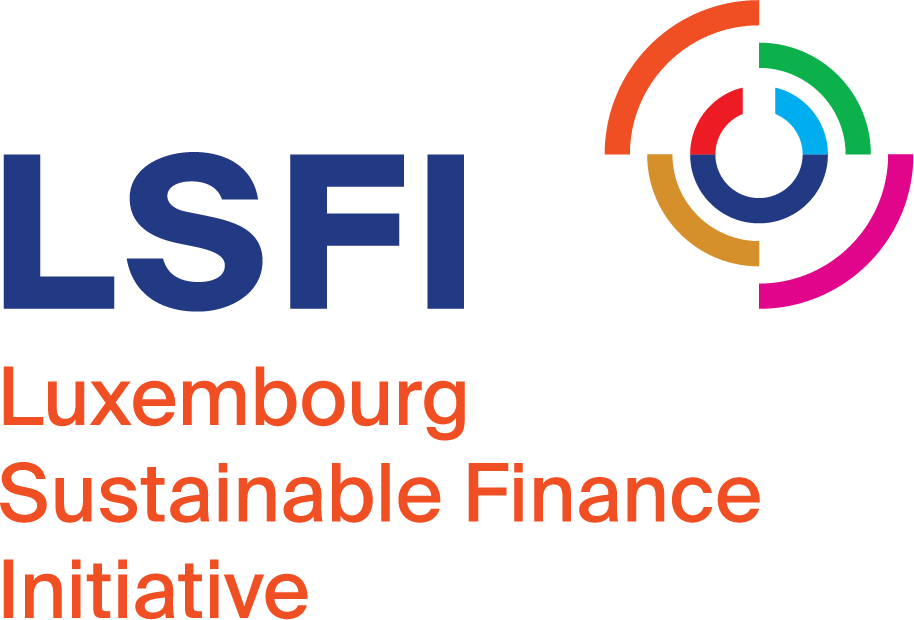Insurance Distribution Directive (IDD)
The Insurance Distribution Directive (IDD – Directive (EU) 2016/97) is a Directive on insurance distribution (fully recasting the Insurance Mediation Directive (IMD Directive 2002/92/EC on insurance mediation) introduced by the European Parliament and the Council. The objective is to strengthen the rules on the design and distribution of insurance products and to be applied to the sale of all insurance products in the EU. It intends to harmonize national provisions concerning insurance and reinsurance distribution, while not precluding Member States from maintaining or introducing more stringent provisions to protect customers.
The IDD mainly focuses on the following areas:
- Product oversight and governance (POG) and product distribution arrangements (PDA);
- Conflicts of interest;
- Client’s information and conduct of business;
- Suitability assessment (and information to customer);
- Professional training and competencies.
The IDD is a minimum harmonizing directive, and its provisions are specified by two Delegated Regulations: Commission Delegated Regulation (EU) 2017/2358 on product oversight and governance requirements and Commission Delegated Regulation (EU) 2017/2359 on information requirements and conduct of business rules.
In August 2021, the Delegated Regulation (EU) 2021/1257, amending Delegated Regulation (EU) 2017/2358 and (EU) 2017/2359, integrated sustainability factors, risks and preferences into the product oversight and governance requirements for insurance undertakings and insurance distributors, as well as into the rules of conduct of business and investment advice for insurance-based investment products.
Article 2 of the Delegated Regulation (EU) 2021/1257 introduces the definition of “sustainability preferences” as a (potential) client’s choice, to be expressed in the IDD questionnaire, to integrate one or more of the following financial products into its investment:
- A product where a minimum proportion shall be invested in environmentally sustainable investments as defined by the EU Taxonomy Regulation (EU Taxonomy (1)); and/or;
- A product where a minimum proportion shall be invested in a minimum proportion of sustainable investments as defined in Article 2, point 17 of the Sustainable Finance Disclosure Regulation (SFDR) (2); and/or;
- A product considering Principal Adverse Impacts (PAI) (3)on sustainability factors(4).
Visit the EU Taxonomy section and the SFDR section for further information.
Following the amendments to the IDD, the European Insurance and Occupational Pensions Authority (EIOPA) issued a Guidance on the integration of the customer sustainability preferences (“Guidance on the integration of the customer’s sustainability preferences in the suitability assessment under IDD”) to promote a better understanding of the new rules and facilitate their implementation.
____________________________________________________________
Notes:
(1) Environmentally sustainable investment’ means an investment in one or several economic activities that qualify as environmentally sustainable under this Regulation.
(2) “Sustainable investments” are defined by Article 2, point 17 of the SFDR as investments in an economic activity that contributes to an environmental objective, as measured, for example, by key resource efficiency indicators on the use of energy, renewable energy, raw materials, water and land, on the production of waste, and greenhouse gas emissions, or on its impact on biodiversity and the circular economy. It can also be an investment in an economic activity that contributes to a social objective, in particular, an investment that contributes to tackling inequality or that fosters social cohesion, social integration and labour relations, or an investment in human capital or economically or socially disadvantaged communities, provided that such investments do not significantly harm any of those objectives and that the investee companies follow good governance practices, in particular with respect to sound management structures, employee relations, remuneration of staff and tax compliance”.
(3) “Principal Adverse Impacts” (PAI) are environmental and social-related indicators that assess the (negative) impacts that investment decisions taken by FMPs have on sustainability factors, such as environmental and social issues.
(4) “Sustainability factors” refer to environmental, social and employee matters, respect for human rights, anti‐corruption and anti‐bribery matters as defined in Article 2, point 24 of Regulation 2019/2088 on SFRD.
The Directive represents a major step forward in consumer protection by strengthening the rules on transparency of insurance distribution, including sustainability preferences, and the advice provided by insurance intermediaries, regardless of the distribution channels.
The IDD applies to (re)insurance undertakings and (re)insurance intermediaries involved in the manufacturing and/or distribution of insurance products, including ancillary insurance intermediaries.
To comply with the Delegated Regulation (EU) 2021/1257, those entities are required to consider clients’ sustainability preferences when assessing the suitability of a financial instrument. In other words, (re)insurance undertakings and (re)insurance intermediaries must update their IDD questionnaire used to assess their clients’ knowledge and experience with respect to insurance investment products, financial situation, and investment objectives and add questions also to assess their sustainability preferences.
The impact of the Delegated Regulation (EU) 2021/1257 is twofold.
- Firstly, a client’s sustainability preferences must be integrated into the entire distribution process. Consequently, insurance undertakings and insurance intermediaries must provide information at a sufficiently granular level so that the customer can make an informed decision, and collect these sustainability preferences before analyzing their compatibility with the financial instrument in question. Moreover, recommendations regarding the sustainability preferences should be appropriately justified.
Additionally, the sustainability factors of an insurance product should be presented in a transparent manner to enable insurance distributors to provide the relevant information to their customers and/or potential customers, while remaining easily available to customers lacking sustainability preferences.
- Secondly, sustainability preferences must be included in the suitability assessment (Article 30 of the IDD) of the distribution of insurance-based investment products alongside investment objectives and risk appetite. Consequently, only suitable products may be recommended to a client based on their sustainability preferences, and the declaration of suitability must contain how investment objectives, risk appetite and sustainability preferences have been taken into account.
Commission Delegated Regulation (EU) 2021/1253 on MiFID II came into force in conjunction with Commission Delegated Regulation (EU) 2021/1257 on IDD. Collectively, these Delegated Acts introduce sustainability risks and factors to insurance undertakings’ risk management, product governance and oversight, and rules of conduct.
Moreover, the introduction of sustainability preferences is closely linked to the EU Taxonomy and the SFDR. Specifically, Article 2 of the Delegated Regulation 2021/1257 while introducing the concept of sustainability preferences, includes the options to express a minimum proportion of investments that:
- Are aligned with the EU Taxonomy;
- Are aligned with the requirements of article 2, point 17 of the SFDR;
- Consider the PAIs, which are introduced by the SFDR Regulatory Technical Standards.
Visit the MiFID II section, the EU Taxonomy section and the SFDR section for further information.
The Luxembourg Law of 10 August 2018 transposed the IDD into Luxembourg law, introducing several changes to improve customer protection and transparency in the insurance sector. This Law took effect on 1 October 2018.
The Commissariat aux Assurances (CAA) oversees the implementation and compliance of the IDD by insurance and reinsurance intermediaries in Luxembourg.
- 20 January 2016: Entry into force of the IDD (Directive (EU) 2016/97);
- 21 September 2017: Entry into force of the Delegated Regulation (EU) 2017/2358 and Delegated Regulation (EU) 2017/2359;
- 01 October 2018: Application of the IDD (Directive (EU) 2016/97);
- 22 August 2021: Entry into force of the Commission Delegated Regulation (EU) 2021/1257 of 21 April 2021 amending Delegated Regulations (EU) 2017/2358 and (EU) 2017/2359 as regards the integration of sustainability factors;
- 02 August 2022: Application of the Commission Delegated Regulation (EU) 2021/1257.
These changes follow the European Commission’s agenda to promote sustainable considerations in the EU financial sector as set out in the EU Sustainable Action Plan (2018) and corresponding to the objectives of the EU Green Deal.
- 21 April 2021: Adoption of the Delegated Regulation (EU) 2021/1257;
- 02 August 2021: Publication of the Delegated Regulation (EU) 2021/1257 in the Official Journal of the European Union;
- 22 August 2021: Entry into force of the Commission Delegated Regulation (EU) 2021/1257;
- 2 August 2022: Application of the Commission Delegated Regulation (EU) 2021/1257.
Currently, there is no consultation open or pending.
- IDD – Directive (EU) 2016/97 of the European Parliament and of the Council of 20 January 2016 on insurance distribution (recast)
- Commission Delegated Regulation (EU) 2017/2358 of 21 September 2017 supplementing Directive (EU) 2016/97 of the European Parliament and of the Council with regard to product oversight and governance requirements for insurance undertakings and insurance distributors
- Commission Delegated Regulation (EU) 2017/2359 of 21 September 2017 supplementing Directive (EU) 2016/97 of the European Parliament and of the Council with regard to information requirements and conduct of business rules applicable to the distribution of insurance-based investment products
- Commission Delegated Regulation (EU) 2021/1257 of 21 April 2021 amending Delegated Regulations (EU) 2017/2358 and (EU) 2017/2359 as regards the integration of sustainability factors, risks and preferences
- EIOPA final report “Guidance on the integration of the customer’s sustainability preferences in the suitability assessment under IDD”
- Luxembourg Law of 10 August 2018

